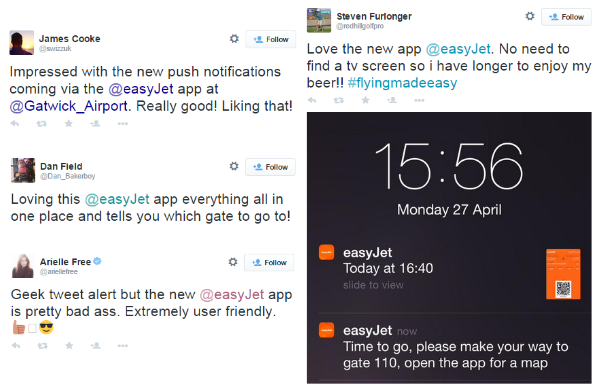“Collaboration” is a buzzword we often hear in the air transport industry, but tangible examples of effective airline/airport collaboration to improve operational efficiency and enhance the passenger experience are far harder to come by.
One such example, though, is Gatwick Airport, along with its largest airline customer, easyJet, both of which have shown commitment to work closely together with the aim of reaping shared rewards. The recently enhanced easyJet Mobile Host app, which combines live data from Gatwick Airport’s information systems together with the passenger’s flight itinerary and indoor maps of the terminal to provide passengers with bespoke instructions and updates, offers a useful case in point.
“At Gatwick, we’re leading the way in terms of collaboration between the airlines and airport,” Abhilash Chacko, Head of IT Commercial at Gatwick Airport, told FTE.
easyJet’s Mobile Host application enhancement is the result of a much wider project. Gatwick Airport has been investing heavily in its integration and data platforms so it can provide key passenger information in real time to its airline partners. At the same time, the ongoing Project Galileo sees Gatwick Airport working with its partners to deliver stable operations, and this is being undertaken through the decommissioning of legacy IT assets and interfaces, which are being replaced by more modern, web-based systems, which can help its partners meet evolving customer requirements. “By 2016, all of our legacy interfaces will be removed,” Chacko stated.
‘A many to many relationship’
Importantly, the Mobile Host project has laid the foundations for Gatwick’s other airline partners to tap into the data services to add similar functionality to their own smartphone and tablet applications.
“The project with easyJet was the first time we had done this, so we didn’t have a sample implementation to work from,” Chacko explained. “Airlines operate from multiple airports, and airports serve multiple airlines, so it’s a many to many relationship that we’re talking about. The key thing was for this model to be scalable and easily adoptable, which is why we used the AIDX standard format and decided to work with an intermediate data consolidator. It took time to figure out, and put the agreements in place, but now we have developed the scalable infrastructure and reusable model.”

The collaborative project between Gatwick Airport and easyJet has essentially created a blueprint that other carriers can benefit from. In fact, easyJet recently shared its experiences with other stakeholders at one of the regular IT Customer Forums at Gatwick Airport, and according to Chacko, “some of the other top airlines at Gatwick have already expressed an interest” in integrating a Mobile Host-style feature into their own apps. In fact, other as-yet-unnamed carriers will offer such a service before the end of 2015, Chacko revealed, which is no surprise given the positive feedback from passengers.
“We’ve had lots of positive feedback, especially on social media. Passengers feel more empowered and comfortable, and rather than just staring at the FIDS (Flight Information Display Screens) when they are at the airport, they have more time to enjoy the experience. We’ve basically turned smartphones into mini FIDS.”
The benefits outweigh the challenges
While the Gatwick Airport/easyJet collaboration provides an example of data sharing best practice, it goes without saying that there are still big challenges for the industry to overcome when it comes to data sharing. This is a fact aptly highlighted in the Smart Thinking report released by SITA last year. According to this report, 62% of airlines and 64% of airports consider system incompatibility and data integration a significant challenge, and 55% of airlines and 57% of airports consider coping with and analysing high amounts of data another big challenge.
Gatwick Airport seems to be coping just fine, though, and Chacko explained that the airport is proud to be “showing the benefits of sharing data and we’re happy to be an industry leader”, but also stressed the importance of the “positive relationship” with its airline partners. In short, a driving force behind the operational and passenger-focused improvements at Gatwick Airport is effective airport/airline collaboration, which is a point worth noting for the rest of the industry.






